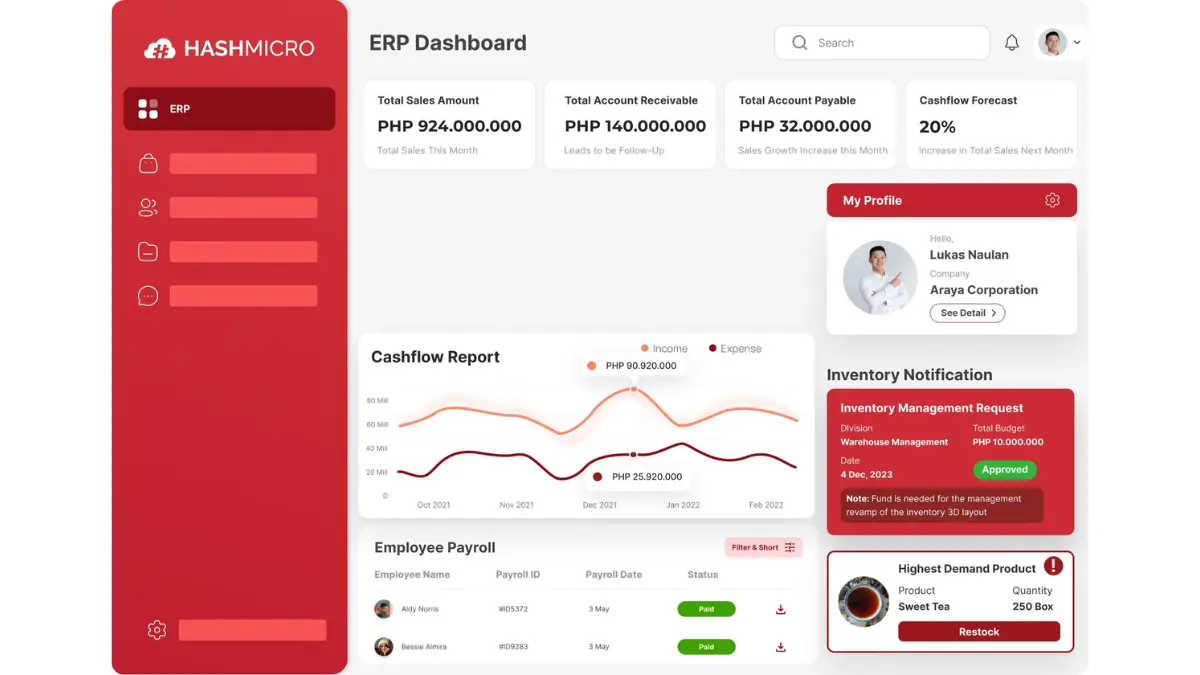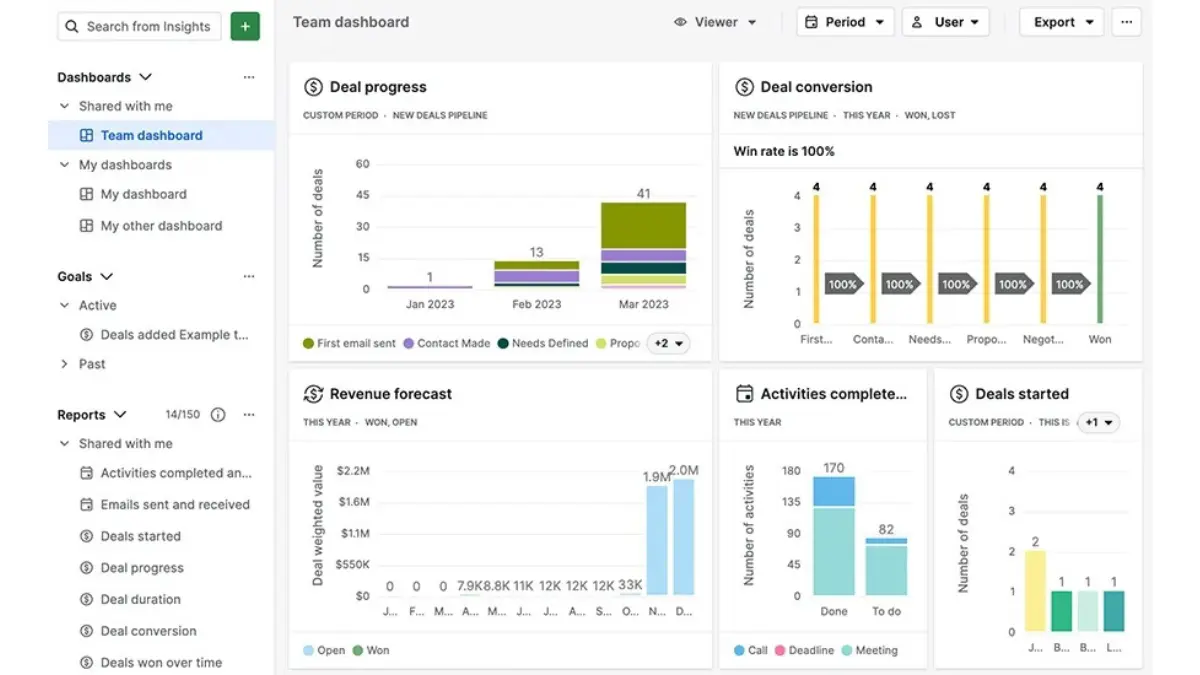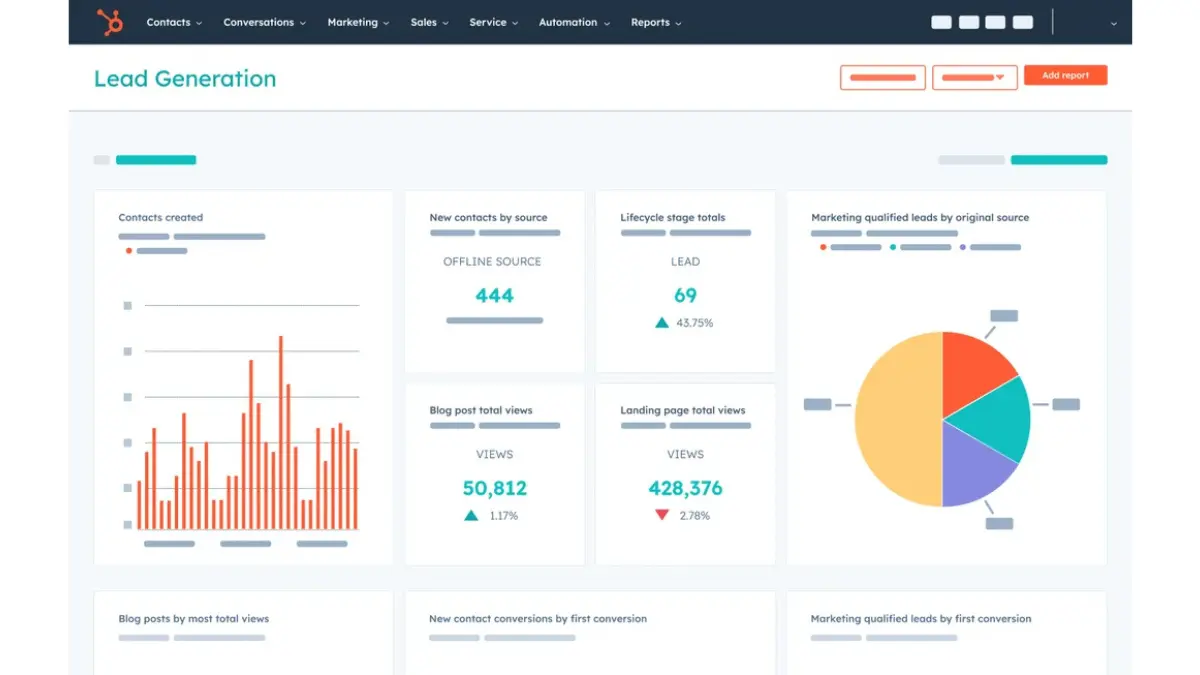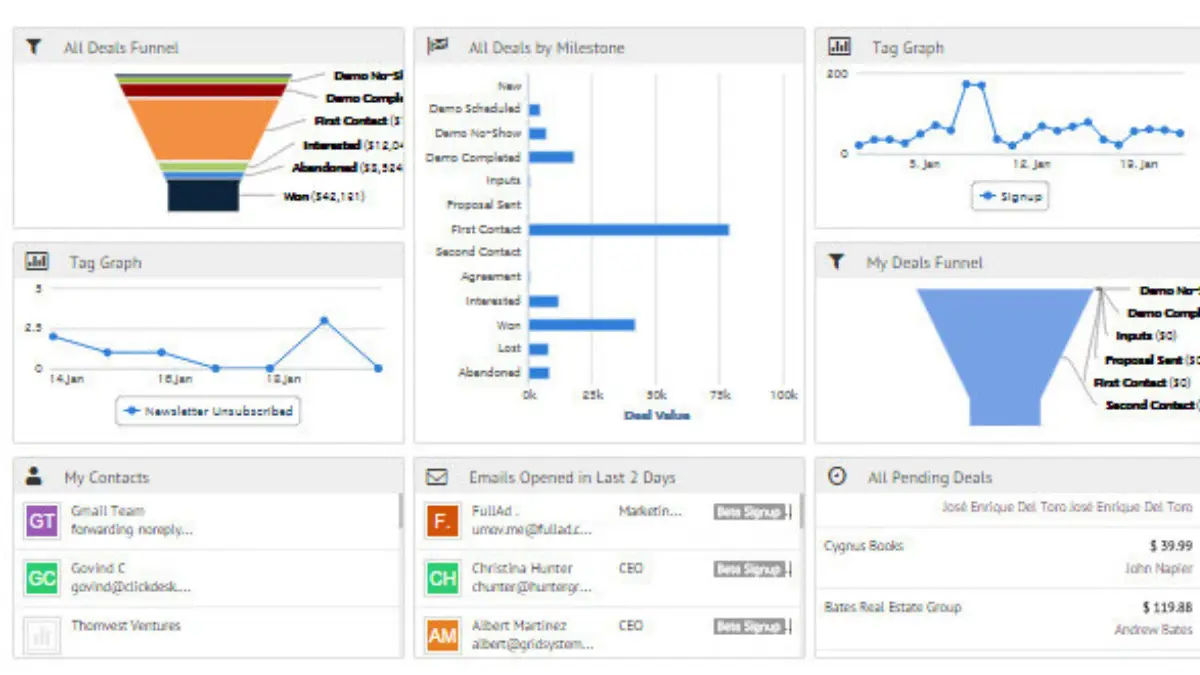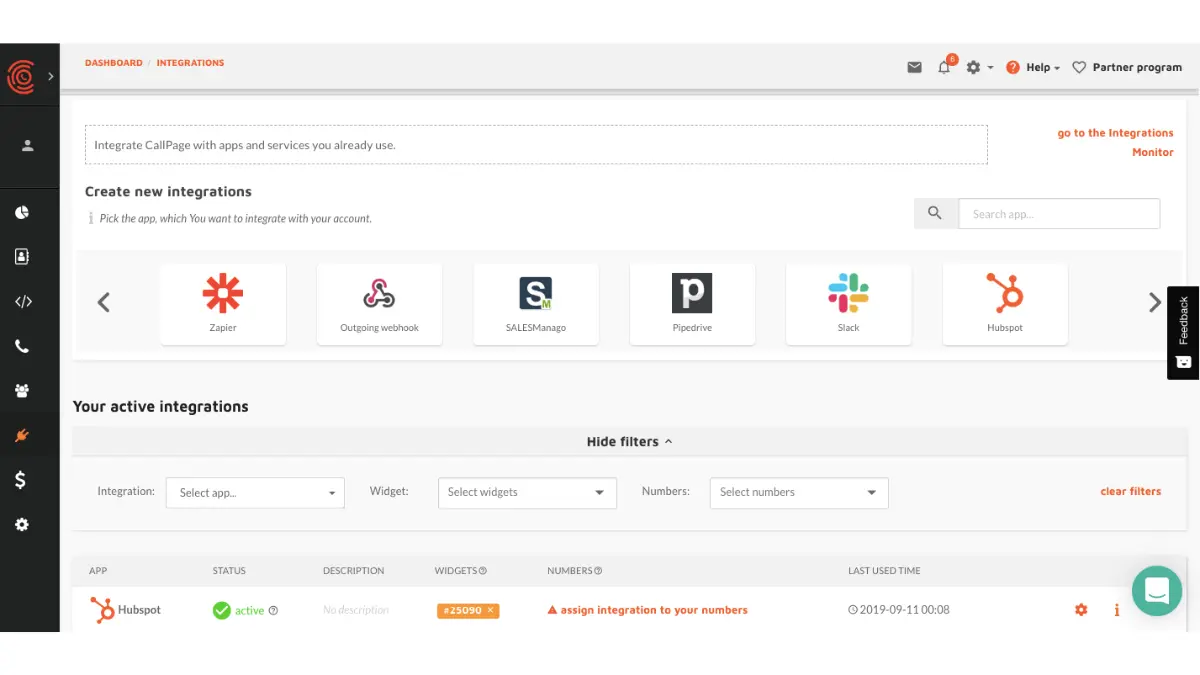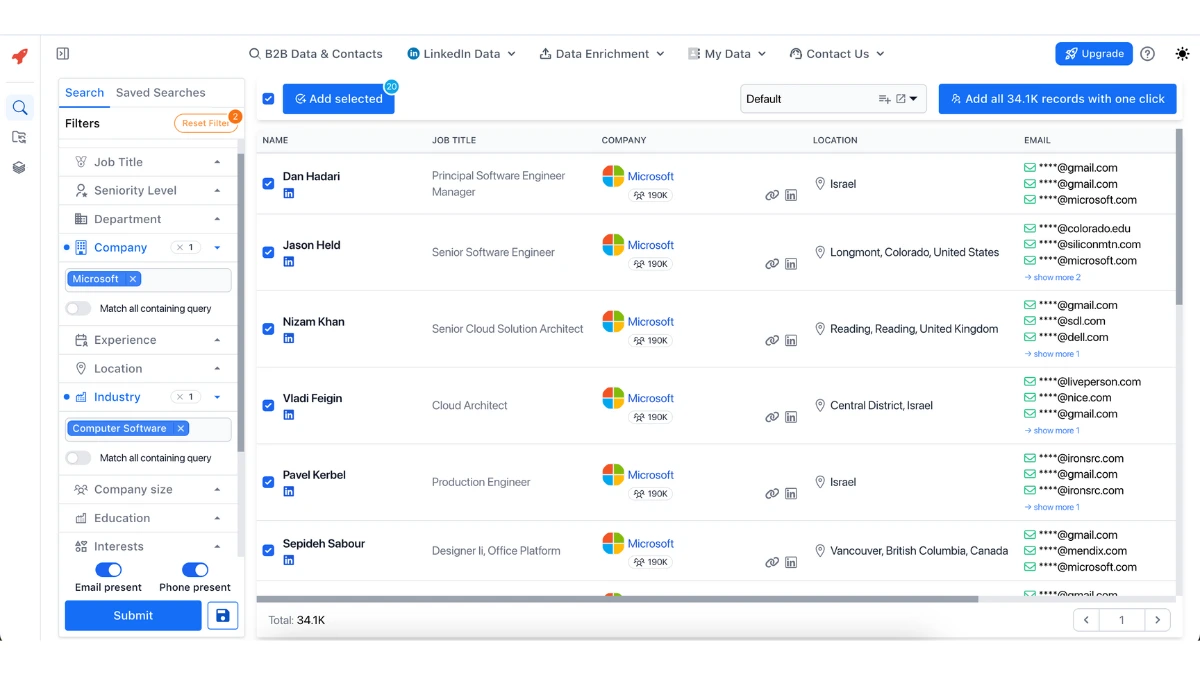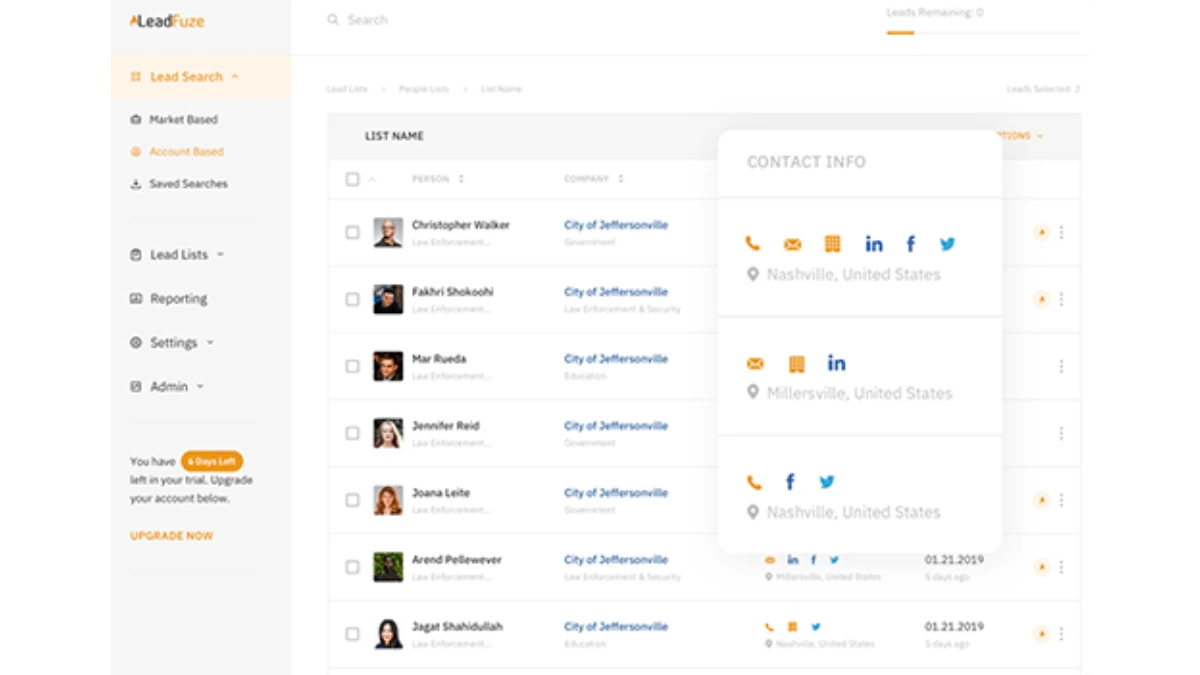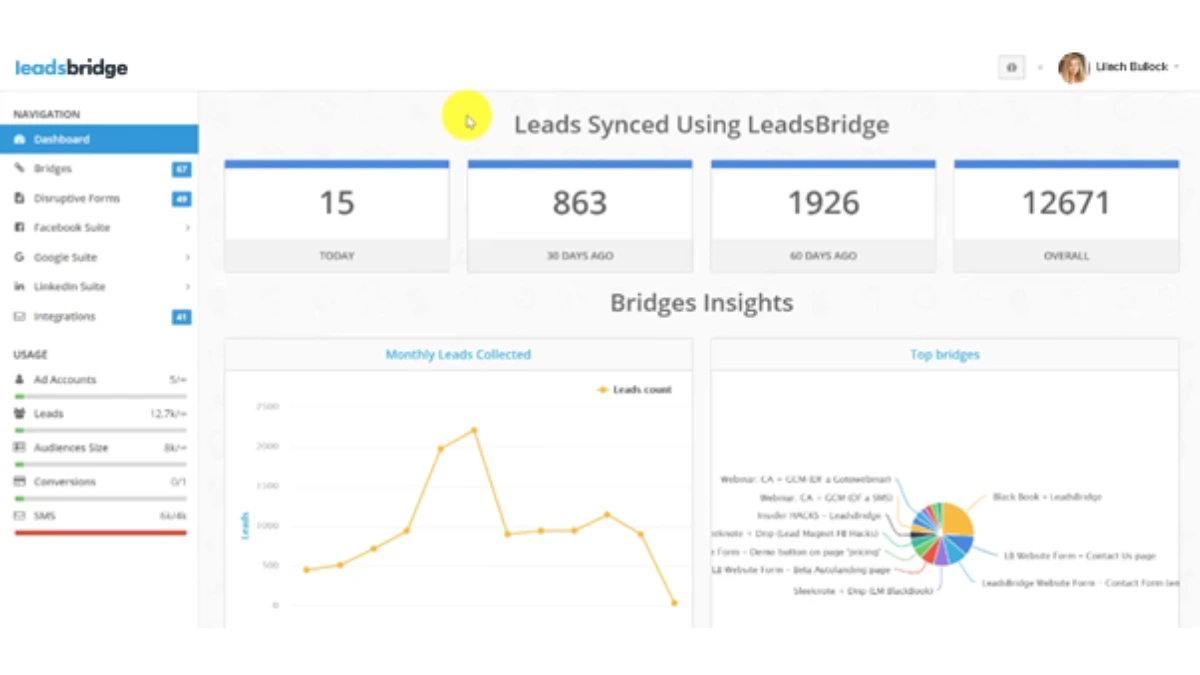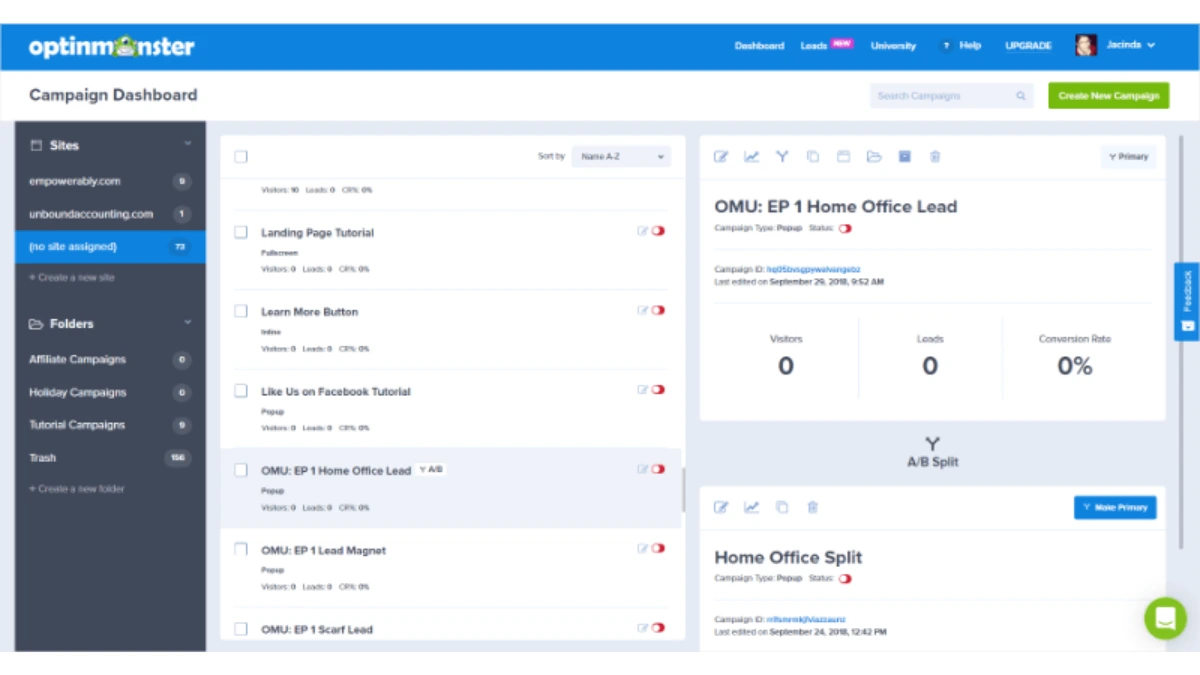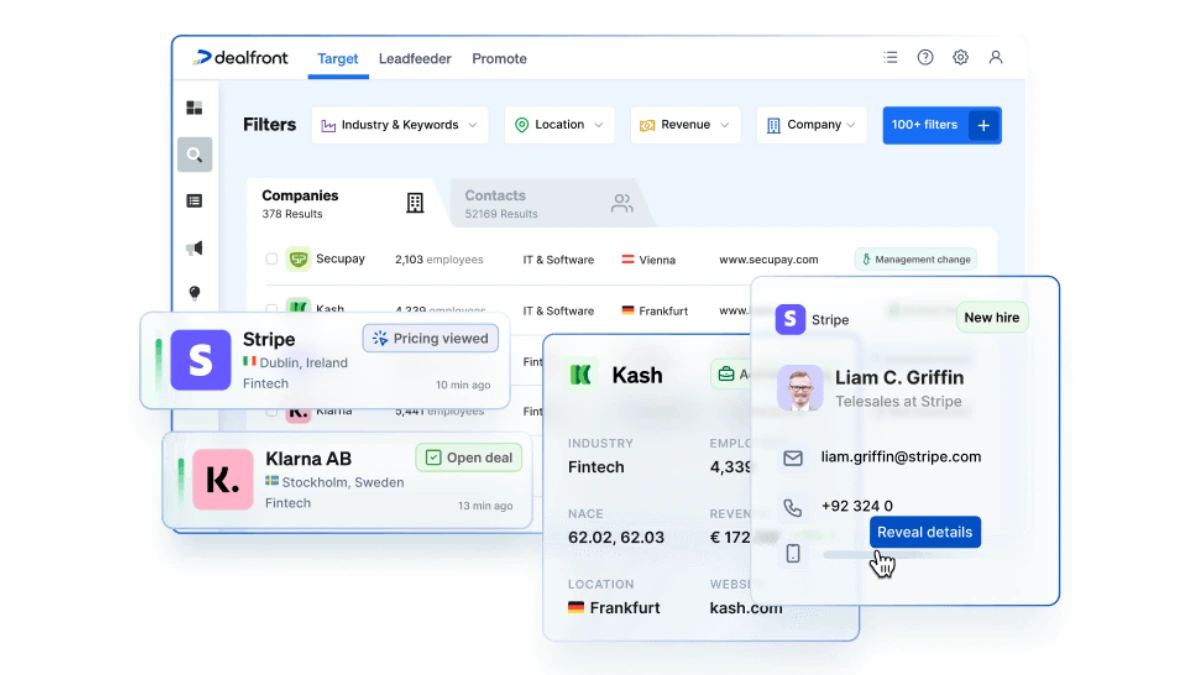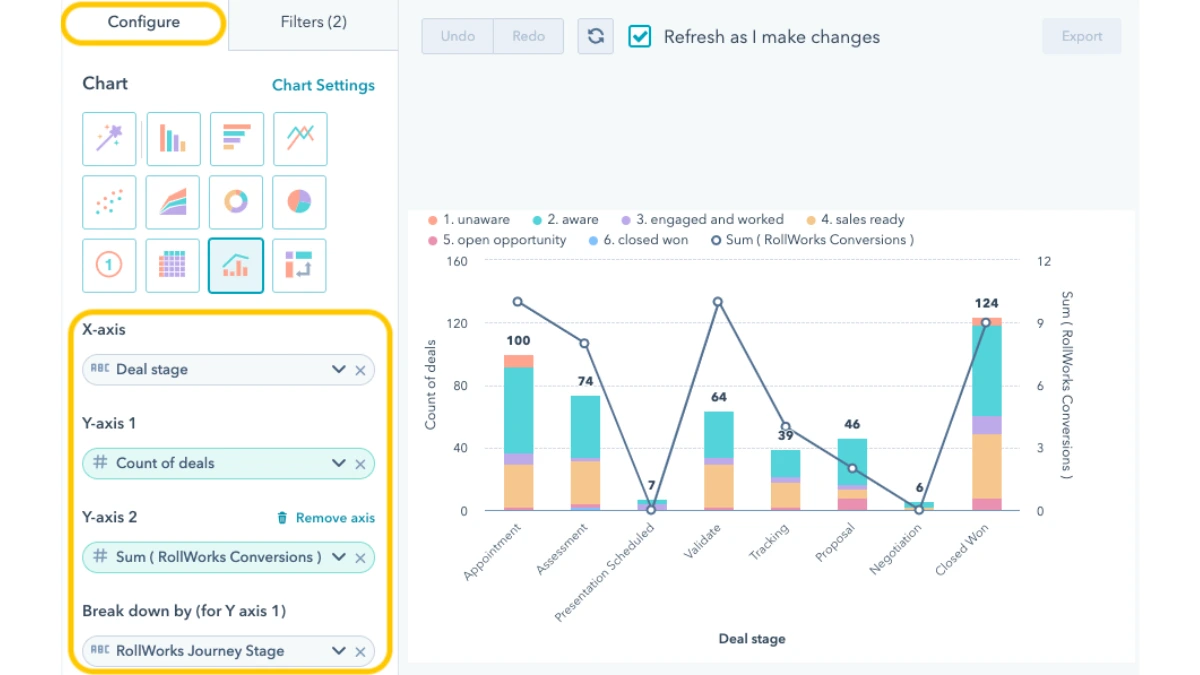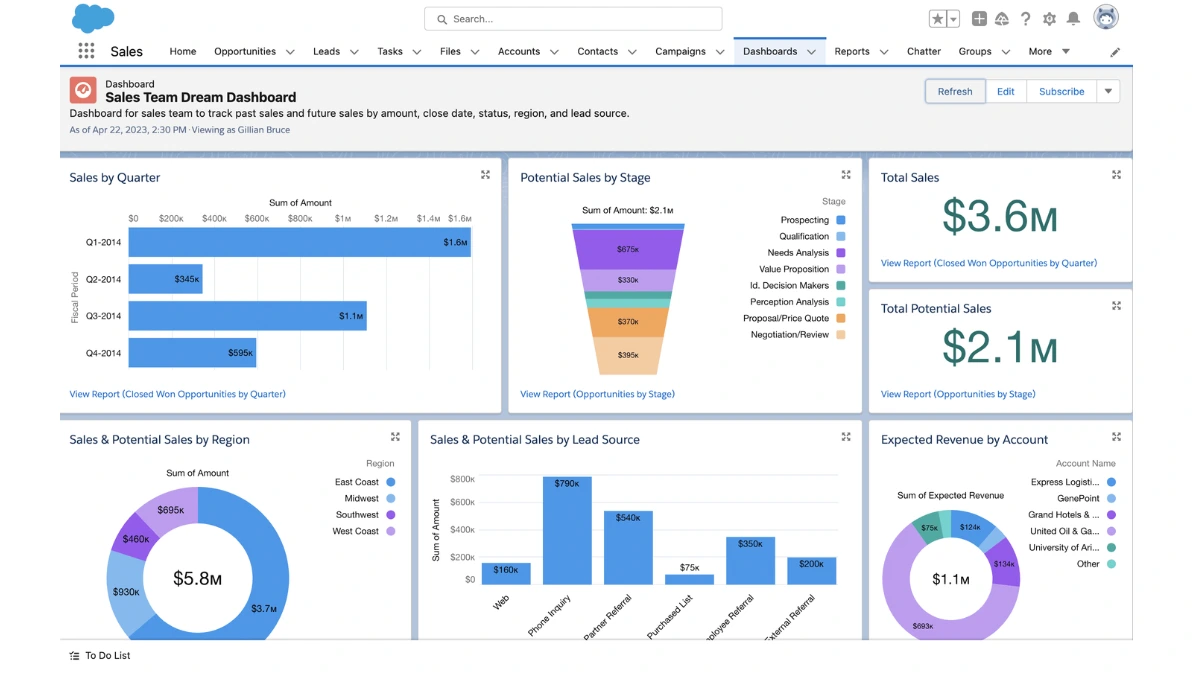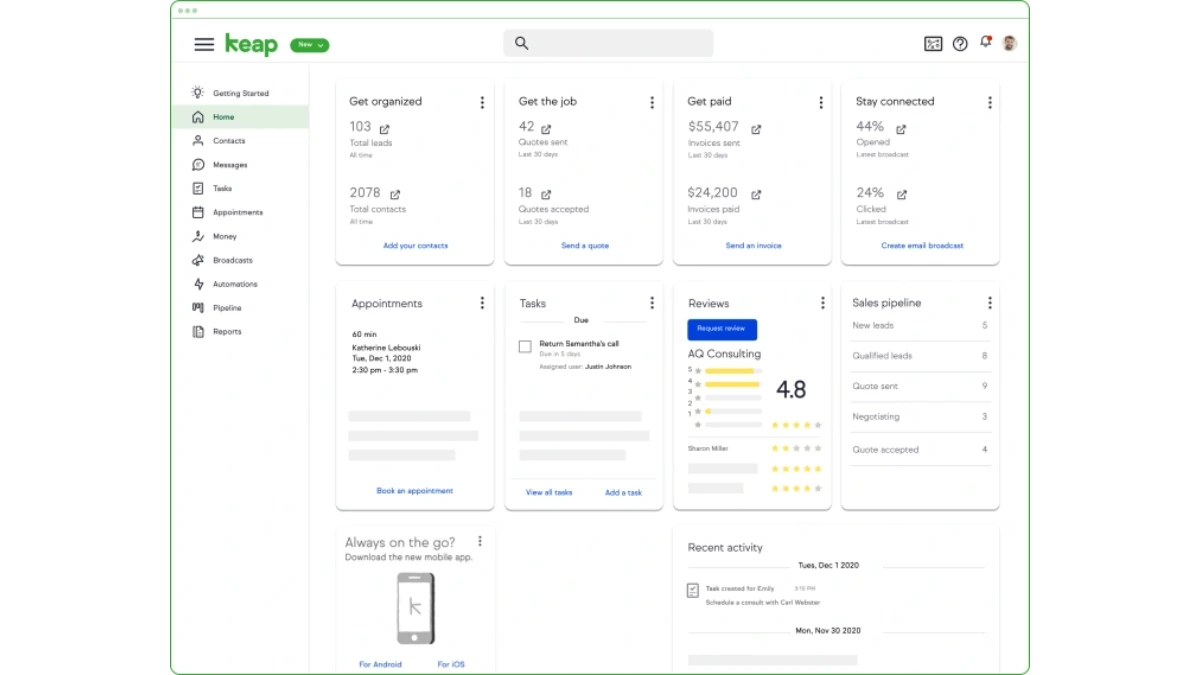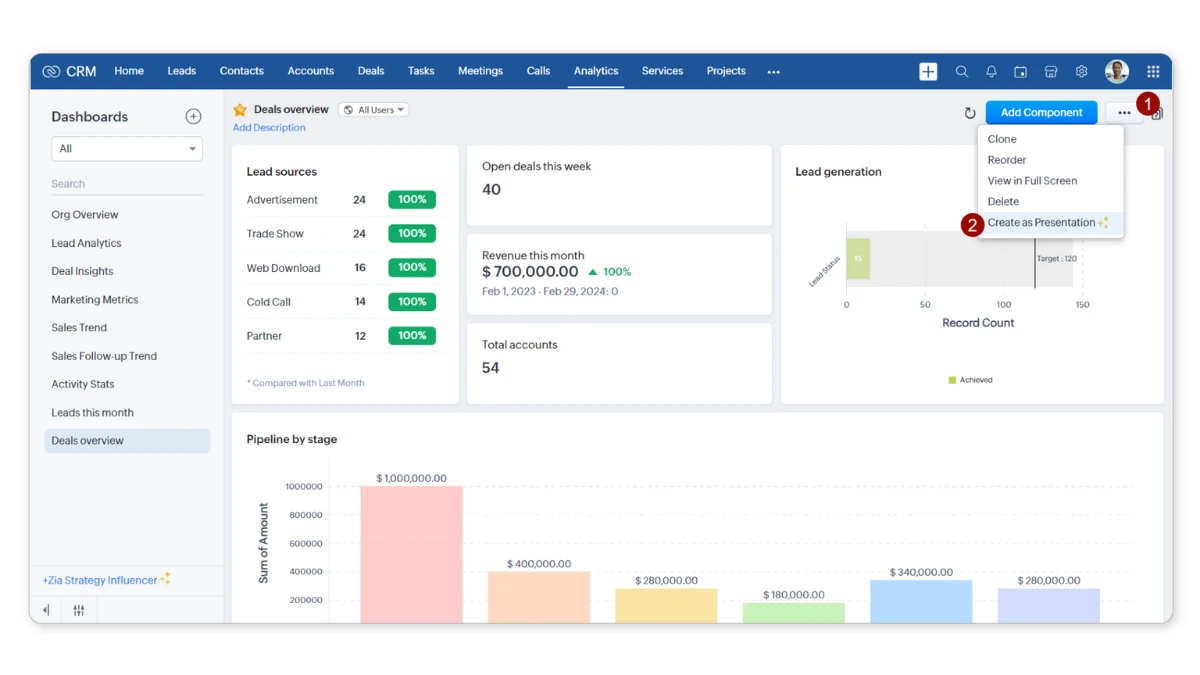In 2025, Ang lead generation ay naging mas sopistikado, kung saan ang mga negosyo ay umaasa sa mga advanced na tool upang mapalakas ang pagkuha ng customer at paglago ng benta. However, despite the availability of technology, many companies continue to struggle to find effective ways to convert prospects into loyal customers.
One of the biggest challenges in lead generation is accurately scoring leads and managing large volumes, which can overwhelm teams and result in missed opportunities. HashMicro’s CRM Lead solves this by automating lead scoring, follow-ups, and integration, ensuring your team focuses on high-potential prospects and boosts efficiency and conversion rates.
In the Philippines, a recent study by Statista reveals that nearly 60% of businesses continue to rely on traditional methods of lead generation, which often fall short in terms of scalability and efficiency. This highlights the urgent need for modern, automated solutions in the region.
If you’re looking to take your lead generation strategy to the next level, keep reading! In this article, we’ll walk you through the top tools of 2025, including how HashMicro’s CRM Lead can streamline your process and drive better results for your business.
Table of Contents

Key Takeaways
|
One Minute Overview of Best Lead Generation Tools
| Tool | Category | Best for |
| HashMicro | CRM Lead Automation | Automating lead generation, CRM integration, and customizing lead management processes to drive conversions and achieve sales goals. |
| Pipedrive | Sales CRM | Visual sales pipelines and activity tracking |
| HubSpot Marketing Hub | Inbound Marketing | Inbound marketing and lead nurturing |
| Agile CRM | All-in-One CRM | Combining sales, marketing, and helpdesk tools |
| CallPage | Callback Widget | Real-time engagement via instant callback |
| AeroLeads | Lead Prospecting | Finding B2B emails and phone numbers |
| LeadFuze | AI-Driven Prospecting | AI-assisted lead discovery and filtering |
| LeadsBridge | Marketing Integration | Syncing lead data across ad platforms |
| OptinMonster | Conversion Optimization | Creating popups and exit-intent campaigns |
| Dealfront | Website Visitor Intelligence | Identifying anonymous web visitors for B2B |
What is Lead Generation?
Lead generation is a vital process in digital marketing, involving strategic efforts to attract and engage potential customers, with the ultimate aim of converting them into loyal buyers. At its core, practical lead generation tools streamline the capture of user data through activities such as online forms, social media interactions, and downloadable content, significantly enhancing a business’s growth potential.
Understanding what lead generation tools are can be simplified by categorizing them into inbound and outbound approaches. Inbound strategies utilize engaging content, such as blogs, newsletters, and AI-driven insights provided by advanced AI tools, that naturally draw prospects to interact with your brand.
On the other hand, outbound methods involve proactive outreach, often supported by some of the best lead generation tools and specialized lead generation software, which help businesses directly connect with new prospects through targeted campaigns, such as cold emailing or personalized direct messaging. Balancing these strategies effectively allows Filipino marketers to maximize their reach and efficiently turn leads into long-term customers.
Why is Lead Generation Important?
Effective lead generation is crucial to growing any business, as it systematically attracts potential customers and guides them steadily through your sales funnel. Utilizing the best lead generation tools not only enhances customer acquisition but also directly boosts revenue, ensuring sustainable growth for Filipino businesses in today’s competitive market.
Without a robust lead generation strategy, your business risks losing valuable prospects to competitors actively engaging their target market. This potential loss can lead to significant setbacks, including reduced sales performance, slower business expansion, and a lack of insight into evolving market trends and customer preferences.
Strategically leveraging powerful lead generation software, particularly innovative AI tools for lead generation, enables your business to pinpoint the ideal audience, optimize marketing efficiency, and foster lasting customer relationships.
To summarize, effective lead generation helps you to:
- Target and engage the right customers effectively.
- Streamline your marketing and sales processes.
- Capture meaningful data to improve your offerings.
- Consistently drive higher sales opportunities.
What are Lead Generation Tools?
At its core, lead generation software refers to specialized platforms designed to help businesses identify, attract, and manage potential customers through various digital marketing channels, including advertisements, landing pages, chatbots, webinars, and other online tools. These lead generation tools streamline customer acquisition by capturing vital information to nurture and convert prospects into loyal clients effectively.
Typically, the best lead generation tools fall into two categories—inbound and outbound solutions. Inbound tools utilize content marketing strategies, including social media engagement, website interactions, and AI-driven chatbots, making them particularly suitable for consumer-oriented businesses (B2C) that prefer less aggressive sales approaches.
On the other hand, outbound tools actively target and reach out to potential clients using techniques like cold emailing, lead scoring, and data enrichment, proving highly effective for B2B sales strategies. When determining what lead generation tools are best suited for your business, it’s crucial to select platforms that align with your industry needs and customer engagement style.
The 15 Best Lead Generation Tools Solutions
To excel in today’s competitive market, businesses need powerful lead management software that is designed for efficiency, ease of use, and strong integration capabilities. Here are the top 15 solutions in 2025, carefully selected to optimize your lead management and customer lifecycle.
1. HashMicro Lead Generation Tools
Managing lead generation requires accuracy and efficiency to attract and convert prospects consistently. HashMicro offers a fully integrated lead generation solution that enables businesses to automate lead capture, scoring, and follow-ups, streamlining the entire sales pipeline for better conversion rates.
Experience the benefits of automation through HashMicro’s free demo, featuring real-time lead tracking, AI-powered segmentation, and CRM integration. This solution reduces manual workload and ensures a steady flow of qualified leads.
Why choose HashMicro? Unlike standard tools, HashMicro’s lead generation software, powered by Hashy AI, is specifically designed to enhance high-impact campaigns with smart lead routing, user-friendly dashboards, and complete automation from start to finish.
Key Features of HashMicro’s Restaurant Inventory Software:
- CRM Lead Management: The CRM system captures and organizes all lead data in one centralized location, ensuring that no lead is lost and that follow-ups are conducted in a timely manner, thereby improving lead conversion rates.
- Chatroom for Real-time Communication: Integrated chatrooms facilitate instant communication between sales teams and prospects, resulting in quicker responses and fostering better relationships that enhance customer trust.
- Mobile CRM Apps (Android & iOS): With mobile CRM apps, sales teams can access critical lead data on the go, ensuring they stay updated and connected, which leads to improved sales efficiency and flexibility.
- Lead Quality Scoring (Hash Quality Score): By utilizing lead scoring algorithms, businesses can prioritize leads based on their likelihood of conversion, enabling more targeted efforts and increasing the conversion rate of high-value leads.
- KPI-based Activity Targeting: Defining KPIs for sales activities enables sales teams to focus on tasks that directly impact performance, leading to increased productivity and alignment with business objectives.
- Email Blaster (SMTP Integration): The email blaster enables businesses to send bulk, personalized emails directly through their own SMTP server, ensuring higher deliverability and fostering greater engagement with prospects.
- Lead Age Analysis: Analyzing the age of leads helps businesses identify those that are becoming stale or no longer active, enabling teams to focus on more promising prospects and refine their lead-nurturing strategies.
- Integrated Online Lead Management Forms and Emails: The integration of lead management forms and email systems ensures that leads are captured and responded to automatically, reducing manual effort and streamlining the lead-nurturing process.
- Comprehensive CRM and Marketing Reports: Detailed reports on sales activities, mass mailing results, and helpdesk interactions enable businesses to analyze performance and optimize strategies, leading to informed decision-making and more targeted marketing campaigns.
| Pros | Cons |
|
|
Established in 2015, HashMicro is trusted across Southeast Asia for its scalable business automation solutions. Click the banner below to try out the pricing calculator and see how HashMicro can optimize your lead generation strategy.

2. Pipedrive
Founded in 2010, Pipedrive has gained popularity for its highly visual sales pipeline interface. The vendor simplifies lead tracking through its intuitive, drag-and-drop user experience. Pipedrive specializes in efficient sales process automation, providing real-time insights to improve deal management.
Key Features:
- Visual Sales Pipeline
- Customizable Sales Automation
- Integrated Communication Tools
- Activity Reminder Alerts
| Pros | Cons |
|
|
3. HubSpot Marketing Hub
HubSpot, founded in 2006, offers comprehensive inbound marketing tools. Known for pioneering inbound methodology, HubSpot excels at helping businesses attract and nurture leads organically.
Its user-friendly platform features powerful automation and robust integrations. HubSpot continuously evolves, introducing AI-driven innovations to enhance customer engagement. Their responsive support community further solidifies their reputation.
Key Features:
- Automated Email Marketing
- Dynamic Form Builder
- Advanced CRM Integration
- AI-Powered Analytics
| Pros | Cons |
|
|
4. Agile CRM
Agile CRM is a cloud-based customer relationship management platform tailored for sales, marketing, and service automation. It is primarily known for its all-in-one approach and ease of use, making it a favorite among small to mid-sized teams.
Agile CRM provides robust functionality across lead tracking, campaign management, and email automation. With intuitive drag-and-drop features, it ensures smooth workflow customization. It’s also praised for its seamless integrations with Google Workspace and popular third-party apps.
Key Features:
- Contact & Deal Management
- Marketing Automation
- Web Engagement Tools
- Helpdesk Integration
| Pros | Cons |
|
|
5. CallPage
CallPage is a lead generation tool that transforms website visitors into potential leads through instant callback widgets. Founded in 2015, it specializes in real-time communication and is particularly effective for service-driven industries.
CallPage enhances conversion rates by connecting sales teams with prospects in under 28 seconds. Its customizable widget and powerful analytics improve both speed and personalization in engagement. Businesses benefit from automation, call tracking, and lead scoring tools.
Key Features:
- Instant Callback Widget
- Lead Scoring
- Call Tracking & Recording
- Customizable Pop-up Templates
| Pros | Cons |
|
|
6. AeroLeads
AeroLeads is a powerful outbound lead generation tool designed to help businesses find emails and phone numbers in real time. It’s beneficial for B2B outreach, as it allows users to extract verified contacts from LinkedIn, Crunchbase, and other sources.
The platform integrates seamlessly with CRMs, enabling quick data transfers and streamlined follow-up. AeroLeads also offers browser extensions for effortless data capture. It’s ideal for prospecting and list-building campaigns.
Key Features:
- Real-time Contact Discovery
- Email & Phone Number Finder
- Chrome Extension
- CRM Export Functionality
| Pros | Cons |
|
|
7. LeadFuze
LeadFuze is a powerful prospecting platform that automates lead list building and outreach for B2B sales teams. It offers advanced filtering options to find ideal leads based on role, industry, and location.
Users can access verified contact details and integrate them with major CRM platforms. Its AI assistant, Fuzebot, helps keep lead lists fresh and up to date. LeadFuze is especially popular among sales reps looking to reduce time spent on research.
Key Features:
- Automated Lead List Building
- AI-Powered Lead Discovery
- CRM Integration
- Contact Information Verification
| Pros | Cons |
|
|
8. LeadsBridge
LeadsBridge specializes in connecting marketing platforms with CRM and email software, acting as a powerful integration bridge. It automates the syncing of lead data between ad platforms, including Facebook, Google, and LinkedIn.
Designed for marketers who rely on paid campaigns, LeadsBridge minimizes data entry errors and ensures that lead information flows in real-time. It also supports custom workflows and compliance features. This tool is valuable for enhancing marketing efficiency.
Key Features:
- Marketing Platform Integration
- CRM & Email Syncing
- Real-Time Data Transfer
- Compliance Management Tools
| Pros | Cons |
|
|
9. OptinMonster
OptinMonster is a widely used conversion optimization tool that helps turn website visitors into subscribers and leads. Since its launch in 2013, it has focused on building engaging pop-ups and opt-in forms that boost conversion rates.
The platform uses behavior automation to target the right audience at the right time. It also offers A/B testing and detailed analytics to improve campaign performance. Its user-friendly drag-and-drop builder is ideal for marketing teams.
Key Features:
- Exit-Intent Technology
- Drag-and-Drop Campaign Builder
- Behavior-Based Targeting
- A/B Testing and Analytics
| Pros | Cons |
|
|
10. Dealfront
Formerly known as Leadfeeder, Dealfront is a European-based B2B platform that identifies anonymous website visitors and transforms them into actionable sales leads. The platform leverages intent data to uncover high-potential opportunities.
Dealfront integrates with major CRMs and offers deep insights into company behavior. Its lead scoring system helps prioritize outreach effectively. It’s especially suitable for B2B marketing and sales teams in need of buyer intent signals.
Key Features:
- Website Visitor Identification
- Lead Scoring
- Intent Data Analysis
- CRM Integrations
| Pros | Cons |
|
|
11. Extole
Extole is a referral marketing platform that helps businesses generate leads through existing customer networks. It automates the referral process, allowing users to create, launch, and track campaigns efficiently.
Extole integrates with CRM and email platforms to ensure seamless lead capture and nurturing. It’s particularly effective for consumer brands focused on building brand advocacy. With detailed reporting, businesses can evaluate performance and optimize their programs.
Key Features:
- Automated Referral Campaigns
- CRM Integration
- Custom Reward Programs
- Performance Analytics
| Pros | Cons |
|
|
12. RollWorks
RollWorks is an account-based marketing platform built to support B2B sales and marketing alignment. It helps businesses identify target accounts, run cross-channel campaigns, and measure engagement effectively.
RollWorks utilizes AI and intent data to personalize outreach and maximize ROI. Its rich analytics and segmentation tools enable targeted messaging. The platform is particularly well-suited for companies with extended sales cycles.
Key Features:
- Account Targeting
- Cross-Channel Campaign Management
- Intent Data Integration
- Advanced Segmentation Tools
| Pros | Cons |
|
|
13. Salesforce Marketing Cloud
Salesforce Marketing Cloud is a comprehensive digital marketing platform that helps enterprise businesses create personalized journeys across multiple channels. It supports email, social, mobile, and web campaigns with strong AI-powered tools.
The platform integrates deeply with Salesforce CRM, providing a unified customer view. It’s ideal for large marketing teams that need automation, personalization, and analytics at scale. Users also benefit from strong community support and extensive documentation.
Key Features:
- Journey Builder
- AI-Powered Personalization
- Multi-Channel Campaigns
- Deep Salesforce CRM Integration
| Pros | Cons |
|
|
14. Keap
Formerly Infusionsoft, Keap is designed to support small businesses with robust automation and CRM tools. It offers user-friendly sales and marketing automation features for lead capture, email campaigns, and follow-up reminders.
Keap also includes appointment scheduling and e-commerce capabilities. Its simple interface is ideal for teams without technical experience. The platform strikes a balance between simplicity and depth, ideal for early-stage business scaling.
Key Features:
- CRM and Sales Automation
- Email Campaign Management
- Appointment Scheduling
- Lead Tagging and Segmentation
| Pros | Cons |
|
|
15. Zoho CRM
Zoho CRM is part of the larger Zoho ecosystem and is recognized for its flexibility, affordability, and extensive customization options. It helps businesses manage leads, automate workflows, and integrate with other Zoho and third-party applications.
The platform supports AI features through Zia, its intelligent assistant. Zoho CRM is highly adaptable, making it a favorite among global companies seeking a scalable solution. Its interface is straightforward yet powerful.
Key Features:
- Multichannel Lead Management
- Workflow Automation
- AI-Powered Sales Assistant (Zia)
- Integration with Zoho Suite
| Pros | Cons |
|
|
How to Choose the Best Lead Generation Tools
Selecting the right lead generation tools can significantly impact your business’s growth, efficiency, and profitability, particularly in the dynamic Filipino market. Given the wide variety of available solutions, it’s crucial to have clear criteria to ensure you choose the best lead generation tools tailored precisely to your unique business objectives.
Here are five key considerations to help guide your decision:
-
Assess your budget
Evaluate the total cost of ownership, including initial setup and potential hidden fees, to ensure the selected lead generation software aligns with your financial capabilities. Prioritize affordable yet powerful lead generation tools that deliver tangible returns without straining your company’s budget.
-
Identify your business needs
Understand precisely what lead generation tools are by clearly outlining your sales and marketing requirements through internal surveys or customer feedback. Align these insights to choose solutions that specifically address your business challenges, ensuring maximum value from your investment.
-
Evaluate internal resources and vendor support
Assess your team’s capacity and skill set to effectively implement and manage new lead generation software, selecting tools that align with your available resources and capabilities. Additionally, prioritize vendors who offer comprehensive support, training, and reliable customer service, especially when adopting advanced AI tools for lead generation.
-
Define your lead generation strategy
Determine whether your approach will emphasize inbound lead attraction through compelling content or outbound lead prospecting with proactive outreach. Select lead generation tools designed explicitly for your preferred method to optimize effectiveness in capturing potential customers.
-
Focus on integration and scalability
Select the best lead generation tools that seamlessly integrate with your existing platforms, such as CRM systems or marketing automation tools, to maintain smooth operational workflows. Opt for scalable software solutions that can expand and evolve in tandem with your business, efficiently accommodating future growth and changing needs.
Conclusion
Selecting the right lead generation tools is crucial for businesses seeking to remain competitive and achieve sustainable growth. With advancements in automation, AI, and CRM integrations, these tools enable companies to capture, nurture, and convert high-quality leads more efficiently.
When selecting the right lead generation tools, HashMicro’s CRM Lead is an ideal solution for businesses seeking to streamline their lead management. With features like AI-powered lead scoring and seamless CRM integration, it ensures a more efficient sales process, allowing teams to focus on high-value prospects and drive higher conversion rates.
To fully experience the benefits of HashMicro’s CRM Lead, sign up for a free demo today. Click the banner below to explore how this tool can transform your lead generation efforts and help you achieve sustainable business growth.








